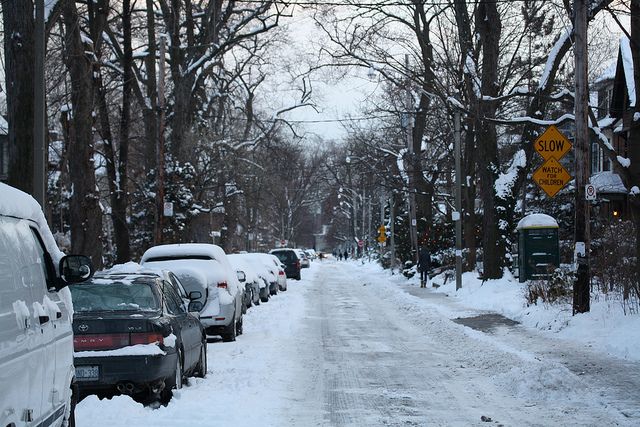Top 10 Problems for Immigrants

Settling in a new region poses many challenges, whatever your background, and there are some that are common experiences for migrants across the globe. While immigrants to Canada may face some, or all of these issues, the country has a range of features which can help to make the transition smoother. In this article we’ll look at those issues and how to resolve them when moving to Canada.
The Top 10 Problems Faced by Immigrants
Settling in a new region poses many challenges, whatever your background, and there are some that are common experiences for migrants across the globe. While immigrants to Canada may face some, or all of these issues, the country has a range of features which can help to make the transition smoother. In this article we’ll look at those issues and how to resolve them when moving to Canada.
Index
- Language barriers
- Employment opportunities
- Housing
- Access to local services
- Transportation issues
- Cultural differences
- Raising children
- Prejudice
- Isolation
- The weather
Language Barriers
Chinatown in Toronto by chensiyuan / Wikimedia Commons / CC BY-SA 4.0
It’s no great surprise that language tops the list of issues facing immigrants to any country. Being able to communicate (or not) affects every area of life in which we have to interact with others. From jobs to schooling, to simply finding your way around or buying food, learning a native language is essential. Both the US and Canada have more than one major language (Spanish and French) and several minor ones. In the case of Canada, French is an official language recognized by the government. If you speak English poorly but French like a native, Canada is a great option!
Wherever you choose, however, learning at least one official language in your new country is essential and there may be local or national bodies which are able to help with courses on both language and culture. However, don’t say goodbye to your native language for good. In an increasingly global market place employers may value your multi-lingual skills more than those with just one or two languages to their CV!
Employment
Job Fair by Bianca ciw / Wikimedia Commons / CC BY-SA 4.0
The next barrier that many new immigrants commonly cite when starting life in a new country is finding suitable employment. Don’t forget the point made in the last section, your language skills could be in demand in a variety of settings; from the international financial sector to government bodies where interpreters may be in desperately short supply.
However, many new immigrants face two particular problems; getting their credentials recognized and relevant local work experience. This can be a Catch 22 situation, which many immigrants find almost impossible to break. In Canada, it’s possible to start the process of getting your credentials recognized before you enter the country and find relevant work experience opportunities after you land.
Housing
Apartments in Toronto by Sheila Thomson / Wikimedia Commons / CC BY 2.0
A big priority for anybody moving to a new area or country is to secure housing. Language barriers can be a big part of the problem for immigrants but lack of local knowledge or how the housing market works in your new country can also present problems. Research in advance is a big part of solving this problem and the internet allows you to explore the local situation more so than in the past.
Best Places to Settle in Canada
Again, national and local government agencies will usually offer advice – whichever country you choose – and may have specific programs for newcomers. In the case of Canada, the national housing agency (CMHC) has a dedicated section for immigrants to explore both the process and important information.
Access to Services
The type, range and quality of services available in your new country is likely to be different to that of your native country. Most immigrants admit that knowing what is available in the first place is a huge barrier.
Services which pose the biggest hurdles include health care, legal advice and access to mental health or social services. Language can often be an underlying part of this problem once again and, again, research in advance can make it easier to access all kinds of services in your new country. In most countries social service departments should be your first port of call for help with these issues. If language is still an issue in the early days it’s likely that interpreters will be available via social services to explain your rights and how and where to start accessing relevant help or services.
Transportation Issues
by Nicholas Moreau / Wikimedia Commons / CC BY-SA 3.0
Access to transportation can be essential in that it will make access to education and employment far easier. Immigrants face particular problems in this respect on two levels.
Firstly, your driver’s licence may not be recognized in your new country, which means there may be costs associated with becoming qualified. Secondly, that language barrier can, again, make understanding or even finding useful local public transit services a hard task.
In Canada, driver’s licences are issued by provincial or territorial governments, not a central body, and you will need to check specific regulations for the area you intend to live. Initially it is normally possible to drive using your home-country licence, although you will also need an International Driving Permit (IDP). Public transit timetables can be challenging even for locals but for immigrants the good news is that in many major cities transport companies often provide multi-lingual information services and timetables. It’s a start!
Cultural Differences
Multiculturalism statue by Robert Taylor / Wikimedia Commons / CC BY 2.0
This is not necessarily the first on the list of practical considerations for immigrants and housing, jobs, transport and services are naturally a priority. However, many immigrants report that, on arrival, it’s the cultural differences that really make a big impression. This can range from social customs to more significant issues such as attitudes towards gender, religious diversity, ethnicity and sexuality, which can all be vastly different in a new country.
What is an Immigrant Mentality?
This can raise a host of problems for both immigrants and the people they interact with. It can also lead to a sense of isolation for immigrants and even affect mental health negatively. It’s important to accept that values will be different and that this is something that you cannot control. Accepting different values doesn’t mean you have to take them on as your own but you may need to learn to respect them in others.
Problem Kids!
Parents experience two different issues when bringing their children to a new country.
Children are likely to be quickly immersed in a new culture through their schools and may begin to seem “foreign” to their own parents. Firstly, remember it doesn’t matter where you come from; teenagers seem like aliens, never mind foreigners. It’s important that you find a balance between teaching your children to respect your own cultural standards and values and allowing them to integrate. Ultimately, one reason to migrate is to give your children a better life and in order to achieve this you’ll have to accept a level of integration for them.
The second issue with parenting is often dealing with schools, when a language barrier gets in the way, and helping kids with homework again, schools, socials services and community groups should be able to help.
Prejudice and Racism
This is a sad feature of the immigrant experience across the world. However, with progressive laws and an increasingly diverse community, Canada has a lot to recommend it. Support services include social services, community and peer groups, along with a modern police force that has strong diversity and anti-racism policies, which are all available to help those facing issues of racism. There are local, national groups that work to combat racism and discrimination on the grounds of race is outlawed under the Canadian Charter of Rights and Freedoms.
Isolation
Missing the support of friends, family and extended social circles is a big factor for most migrants. Those who come from societies where traditional support structures within communities are strong can find that they feel lost, alienated and disorientated when moving to a Western country where individualism is often prized over family.
Canada does, in fact, have a diverse population and major cities have communities from many different countries. This makes them ideal places for those settling in Canada where community groups can offer support and advice for those adjusting to life in a very different kind of society.
The Weather
Snow in Toronto by Daniell Scott / Flickr / CC BY-SA 2.0
Last, but not least, this factor is another that people may overlook when moving to any new country. Canada is associated in many peoples’ minds with cold weather and snow but this is something of a misconception. A massive country, spanning the breadth of a continent, Canada’s climate is as diverse as its people. Ranging from hot dry prairies to Arctic climates in the far north, the country experiences highs of 35 degrees Celsius in summer and lows of -25 degrees Celsius in winter, depending on where you choose to live. The most populated regions in the south, along the border with the US, tend to be more moderate in range, particularly in the coastal regions. In the west, British Columbia has a temperate climate similar to the UK and western Europe. For most immigrants adapting to the climate will be a necessity wherever they settle – and Canada offers plenty of choice!
Where to Live in Canada by Weather
![Toronto's Chinatown By chensiyuan (chensiyuan) [GFDL (http://www.gnu.org/copyleft/fdl.html) or CC BY-SA 4.0-3.0-2.5-2.0-1.0 (https://creativecommons.org/licenses/by-sa/4.0-3.0-2.5-2.0-1.0)], via Wikimedia Commons](https://upload.wikimedia.org/wikipedia/commons/thumb/6/64/Chinatown_toronto_spadina_avenue.JPG/640px-Chinatown_toronto_spadina_avenue.JPG)
![Job Fair By Bianca ciw (Own work) [CC BY-SA 4.0 (https://creativecommons.org/licenses/by-sa/4.0)], via Wikimedia Commons](https://upload.wikimedia.org/wikipedia/commons/thumb/6/6b/Job_Fair_in_Sofia_-_2015.jpg/640px-Job_Fair_in_Sofia_-_2015.jpg)
![Apartment building in Toronto By Sheila Thomson from London, England (134 Avenue Road) [CC BY 2.0 (https://creativecommons.org/licenses/by/2.0)], via Wikimedia Commons](https://upload.wikimedia.org/wikipedia/commons/thumb/b/b0/134_Avenue_Road.jpg/364px-134_Avenue_Road.jpg)

![Statue of Multiculturalism By Robert Taylor from Stirling, Canada (Union2) [CC BY 2.0 (https://creativecommons.org/licenses/by/2.0)], via Wikimedia Commons](https://upload.wikimedia.org/wikipedia/commons/thumb/e/e0/Statue_outside_Union_Station.jpg/437px-Statue_outside_Union_Station.jpg)
